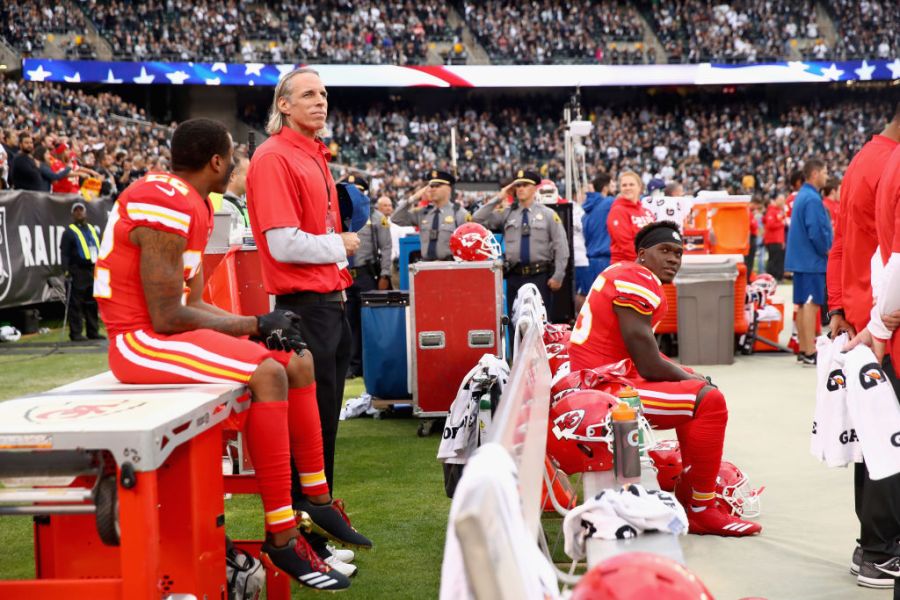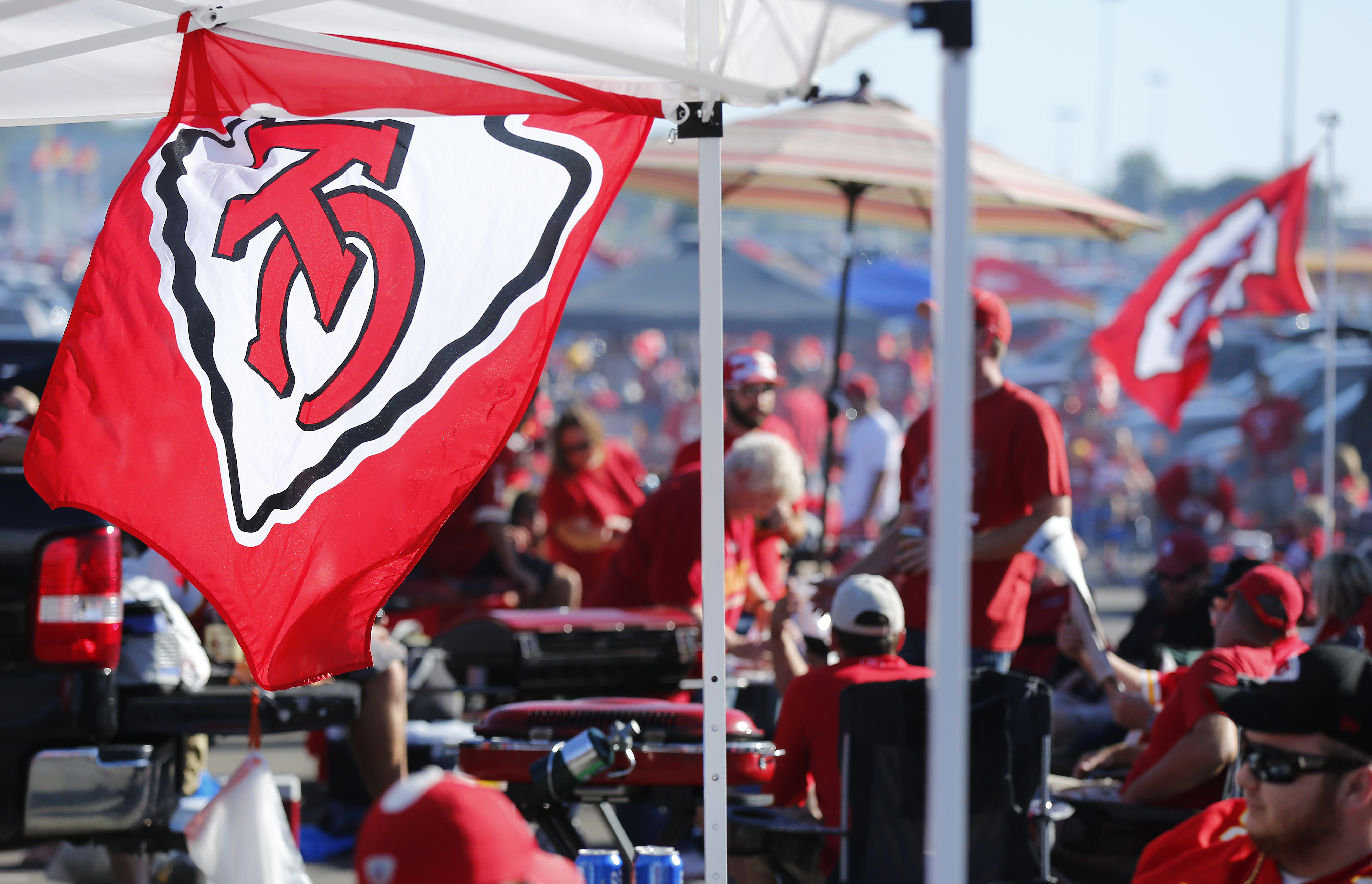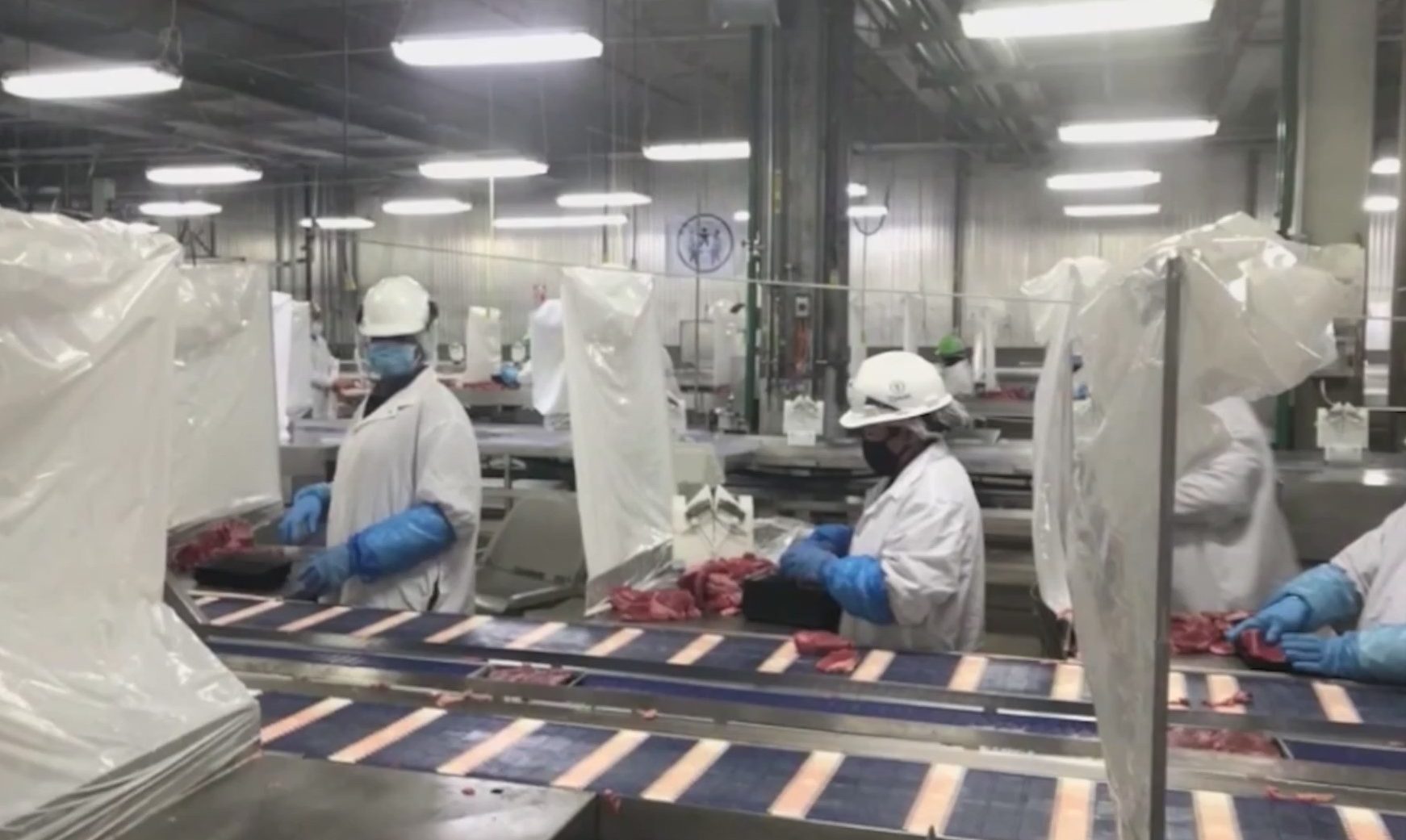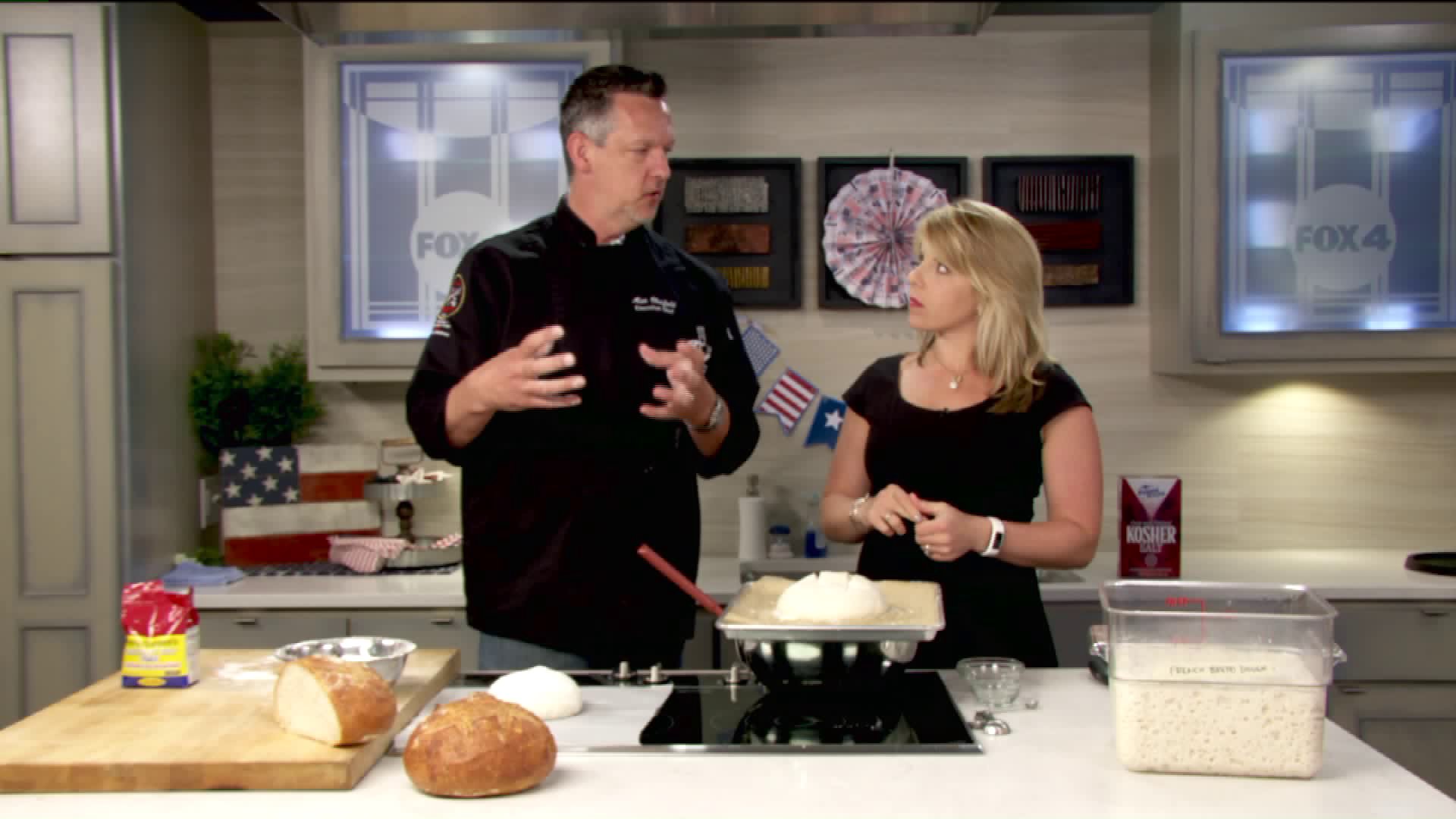KANSAS CITY, Mo. — On June 4, Kansas City Chiefs Super Bowl MVP Patrick Mahomes helped make a video featuring other NFL stars that convinced NFL Commissioner Roger Goodell to admit that the league was wrong for silencing players from peacefully protesting.
According to ESPN’s The Undefeated, several league officials said that the importance of Mahomes’ involvement in the video could not be overstated, that having the face of the league in the video greatly influenced the league’s decision to apologize.
This means that Mahomes’ willingness to speak up about police brutality against Black people helped the league — as well as some of its fans — understand that concerns of players disrespecting the flag by protesting during the national anthem were unfounded and shouldn’t have been discouraged by the NFL.

While it’s good that the NFL finally admitted their wrongdoings with the help of its best player, it would have been better if they reached this conclusion two years ago when the protests began.
Had that been the case, maybe the Chiefs wouldn’t have faced so much pressure to trade away a player as good as Pro Bowl cornerback Marcus Peters.
When the Chiefs elected to trade Peters in 2018, they never completely explained why the trade was made. The only thing general manager Brett Veach would say is that Peters protesting the national anthem that season was not part of their decision.
“Certainly there was never a mandate given to coach and I, and certainly the anthem was never brought up in those discussions,” Veach said of the decision to trade Peters. Veach also said trading Peters was “100 percent” not about the anthem, and that Kansas City looked at his full body of work rather than one or two incidents.
It’s possible the team saw Peters’ four unsportsmanlike penalties in three seasons along with the team mandated one-game suspension and thought that he wasn’t worth the trouble anymore. But that theory doesn’t make much sense when you consider that Travis Kelce had an unsportsmanlike penalty, an ejection and two separate fines all in the same season, and the Chiefs didn’t bat an eye.
From the year he was drafted to 2017, Kelce accumulated two unsportsmanlike conduct penalties, an ejection and several fines for his conduct during and after games. Sure, Peters lost his cool on the field often, but if that were grounds for being traded from Kansas City, Kelce would’ve been traded long before Peters.
It’s also possible that Peters was secretly unliked in the locker room and couldn’t get along with teammates and coaches. But according to his former teammate Justin Houston, that isn’t likely.
“He’s real, and he’s honest,” Houston said to the Kansas City Star in 2017. “People on the outside of this locker room, they look at him and they may judge him. But everybody in this locker room knows who he is, and what he’s about. And everybody in this locker room, they love the man. They ride for him.”
He likely wasn’t traded only because of his conduct on the field or in the locker room, and he surely wasn’t traded because of his play or his contract (he was a two-time Pro Bowler on a rookie deal at the time).
It seems to be that the main reason Peters was traded was because he joined Colin Kaepernick in protesting during the national anthem on several occasions. Protesting was controversial for athletes in 2017. With the league silencing players who were peacefully protesting to avoid angry fans, players at knew that protesting could hurt their career.
“I think what I had was fragile,” said Chiefs safety Tyrann Mathieu, who openly admitted he didn’t do enough during the first wave of protests in 2017. “I had been through a lot to get to where I was at and for me it was about turning a certain corner. That was what my focus was on… trying to avoid negative headlines.”
The Chiefs likely saw the backlash the league was getting from the Kaepernick protests, saw that a lot of people, including its own fanbase, interpreted the protest as disrespect to the American flag and decided that getting rid of Peters was the only way to quell the controversy.
It didn’t help that Peters wouldn’t explain his protests.
“I ain’t trying to get into a back and forth conversation of me trying to prove that I’m not being disrespectful or that I am being disrespectful toward the American flag,” Peters said in 2017. “If y’all wanna talk about the protest, man, give my man Colin Kaepernick a call. And he’ll tell you straight up.”
It is likely Peters was traded and his protest effectively silenced because the Chiefs wanted to appease people who didn’t understand his message. Whether they meant to or not, the Chiefs played a part in the NFL silencing players from peacefully protesting.
To his credit, Chiefs head coach Andy Reid has shown a lot of support for his players (mainly Mathieu and Mahomes) this time around in their efforts to end police brutality. During a news conference Wednesday, Reid talked at length about how Black lives “Absolutely” matter, and that he was “fired up” about his players getting involved in the movement.
But when it came time to talk about Peters’ protest in 2017, he didn’t have much to say.
“(Peters protesting) that’s not a distraction for our football team,” Reid said. “We roll. So I’m going to leave it at that. I don’t want to get into a debate over it. That’s a debate you’re not going to win either way.”
Reid didn’t show as much support for the movement then as he has now, and that might have something to do with how accepted the movement has become. With the world’s best football player supporting it, maybe Black Lives Matter would’ve been more accepted in 2017, and maybe Reid would’ve put this support behind it.
If Mahomes had been around in 2017, maybe he could’ve shown the football fans who love him so much what the anthem protests were really about. Maybe he could’ve shown the NFL that silencing those protests were wrong. Maybe he could’ve convinced the Chiefs that trading Peters for trying to bring awareness to police brutality was the wrong thing to do.
But 2017 is long gone, and progress — no matter how slow — is better than no progress at all. While I wish the NFL had done better back in 2017, I’m glad and hopeful that the league can learn from their mistakes and move forward.
This article is a commentary from FOX4 Sports producer Robert Rimpson and represent his opinions on the issues discussed and analyzed.







